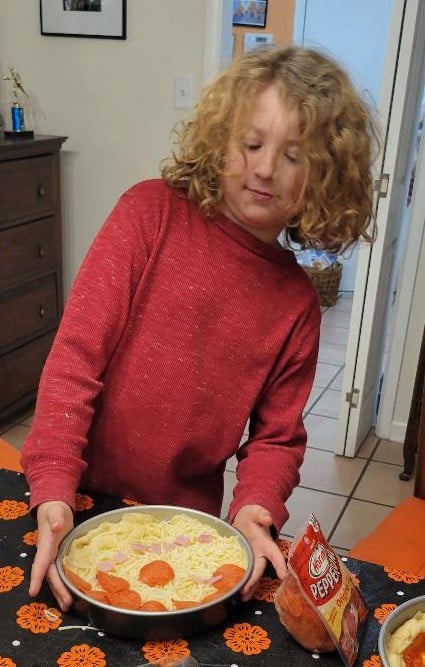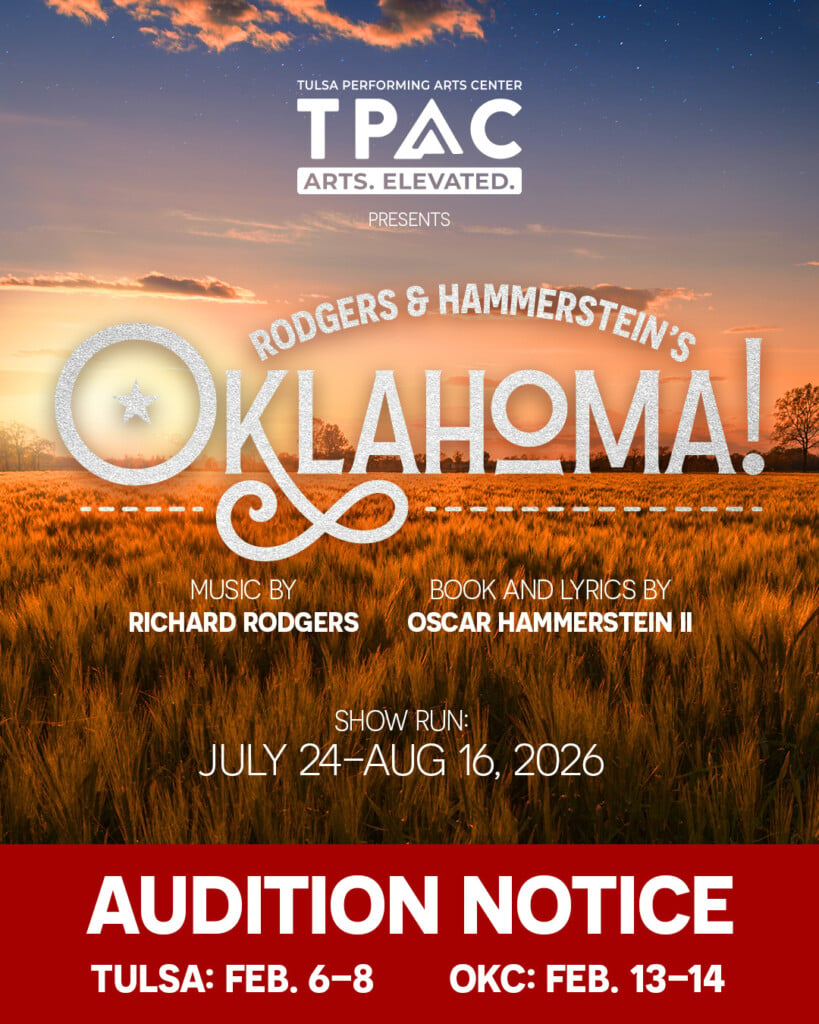Summer Dangers: Water, ATV & Bicycle Safety
Sponsored by The Children's Hospital at Saint Francis
Dr. David George, a pediatrician with Warren Clinic, answers questions about summer safety. Watch the video below, or read the following transcript.
TK: As Memorial Day ushers in the beginning of the summer season, it’s a great time to remind parents about summer safety. Two common dangers in Oklahoma are water and ATVs/UTVs. Let’s talk about safety around water first.
Dr. George: Water safety is hugely important. Everybody who has kids should be aware of where they are around the water because drowning, even with the improvement in safety devices such as fences around pools, is still the leading cause of death in kids aged 1-4.
One of the things we can do is have an adult around the pool at all times. Having somebody who’s present, whether that’s at a pool, a pond, the beach or on a boat, make sure there’s a responsible adult who’s always paying attention to the kids.
Make sure kids have their life jackets on. That’s one of the things I do with my own kids. Any time they’re around water, I make sure they have their life vest on. We do not recommend pool floaties like the little ones that go around their biceps.
If you’re on a boat, be a good example for the kids and have that life jacket on yourself.
Also, teach kids to swim. I’m a big advocate for kids taking swim lessons, from infant classes all the way up to when kids are getting confident in swimming. Sometimes problems arise when kids get a little too confident, especially right around age 2-4. They’re very confident in their skills, but they don’t yet have the skills.
TK: You recommend swim lessons for all kids, but can you talk about the dangers of children feeling over-confident.
Dr. George: Never let your child be over-confident in the water. Some kids will say, “I know how to swim. I’m going to jump in the water!” But they may not be ready yet. That is true around pools, lakes, ponds and the ocean – any water.
TK: Thinking about jumping into bodies of water like lakes and ponds, I guess we need to warn our children about that as well?
Dr. George: Yes. Because you never know how deep the water is in those areas, especially in some of the area lakes where a lot of people go jumping off cliffs into the water. We never know how deep the water is in those areas, so it’s inadvisable for any child to be doing that. Even with adult supervision.
TK: You mentioned floaties. Do parents get a false sense of security when kids are wearing floaties?
Dr. George: It’s a very false sense of security. They can float off the kids’ arms, and the kids are left in the water with their arms up. It’s not helpful at all. Parents should look for life vests that are rated by the appropriate safety industries for a kid’s weight. Make sure you know your kid’s most recent weight and pick the appropriate life vest for them, whether it’s for an infant or a child. Make sure to get the appropriate size, and make sure they wear it any time they’re around water.
TK: You said that it’s important to have an adult constantly watching children in the water. Wouldn’t we hear a child splash if they fell in?
Dr. George: Not always. We hear stories about kids falling in the pool, and there may have been an adult there one second, they turn their back, and then they see a kid at the bottom of the pool. It’s terrible, but it happens a lot. You might not hear splashing.
TK: Are there safety devices for pools?
Dr. George: Fences around pools are very helpful. Residential swimming pools are required to have a fence or a barrier. There are also alarms that people can put in their pools, and those safety devices do help a little bit. But paramount is having the adult supervising kids around the pool.
TK: What about lifeguards? Does that give people a false sense of security sometimes?
Dr. George: Any time there is a lifeguard on duty, it is still the adult’s responsibility to watch the child. Now, the lifeguard will be able to help if something bad is happening. Even with my own kids, we were at a pool where there were lifeguards, and one of the kids jumped in the pool. Within one-half a second, they were already at the bottom of the pool. If we hadn’t been watching, they probably would have stayed there for a couple seconds longer.
Having that lifeguard present is helpful, but the parent should always be watching the kids because lifeguards are responsible for the whole pool.
TK: Another common danger for kids and teens in the summer are ATV/UTV accidents. Talk about those dangers. Would you let your child ride an ATV?
Dr. George: I don’t have an ATV, so it’s an easy answer for me. No, I wouldn’t. Especially alone, and especially without a helmet. Kids shouldn’t ride ATVs until they’re 16 years old. A lot of people in Oklahoma are out riding ATVs at younger ages, but they shouldn’t be on it until they’re 16, especially if they’re alone. People do it all the time with their kids, so make sure they have a helmet on if they’re going to do it at all. Riding ATVs or being on an ATV with little kids is not something that we would advise as pediatricians. Kids fall off, kids get wriggly. Or your kid might wiggle, and you get off balance and roll the ATV. We see a huge amount of all-terrain vehicle accidents in Oklahoma.
TK: What should people do if they are planning to ride an ATV or UTV to make it as safe as possible?
Dr. George: Like we talked about with the pool or being on a boat: It goes back to role modeling. If an adult is on the ATV, you should always wear a helmet because your head is going to be one of the most unprotected things. So, making sure that you wear a helmet, even if it’s not necessarily the cool thing to do, even if it’s going to mess up your hair, it’s always super important to do. Be a role model for your children and have helmets for your children readily available. Any time they get on an ATV, encourage them to wear a helmet. If you do happen to ride it with your younger kids, make sure they’re wearing a helmet and you’re wearing a helmet. Just make sure you’re a good role model.
TK: You stress the importance of being a good role model. Should we also talk to other parents or relatives about our expectations when our kids aren’t with us?
Dr. George: Yes. There will be peer pressure to do things like jump in the pool, but let them know that, “Hey, this is what I expect out of this situation. I expect you to wear your life vest. I expect you to wear your helmet.” Tell the other parents [about your rules and expectations]. It’s OK to protect your kids by talking to their friends’ parents.
TK: Do you have any other recommendations for summer safety?
Dr. George: Yes. One of the big things that I care about a lot is biking. I love biking, and I’m a huge advocate for cycling in the community. Tulsa Tough is coming up, and it’s been a tradition for my family to watch it, or even try to ride in it. But bike safety is huge. Bikes are a tool that children can use, whether that be riding to school, for exercise or for fun. So, kids should be riding their bikes safely. Like we talked about with ATVs, kids should be wearing their helmets.
It’s one of those things adults should role model for their kids. So, for me, I always model it by wearing my helmet when I’m out biking. Even if you’re just going for a jaunt around the neighborhood, you should always wear a helmet. Encourage your kids to wear helmets, and make sure they fit properly.
Make sure kids wear the right shoes. Riding a bike in sandals is inadvisable because kids are probably going to end up stopping with their feet. If they’re wearing sandals, those could come off, and then they may not stop at all.
I’m a big advocate for making sure that kids are safe on bikes because are fun, they’re useful, they’re a big tool that, if people used them a little bit more in our society, I think we could get around a little easier, and kids could have more fun.
TK: All of us need to remember to wear a helmet when biking, even if it’s just a short distance.
Dr. George: Always protect your head.
TK: Thank you for the tips and for the reminder to be a good role model to our children.
Dr. George: It’s huge because kids are going to do what they see. We can tell them till we’re blue in the face, but they’re always going to do what they see.




